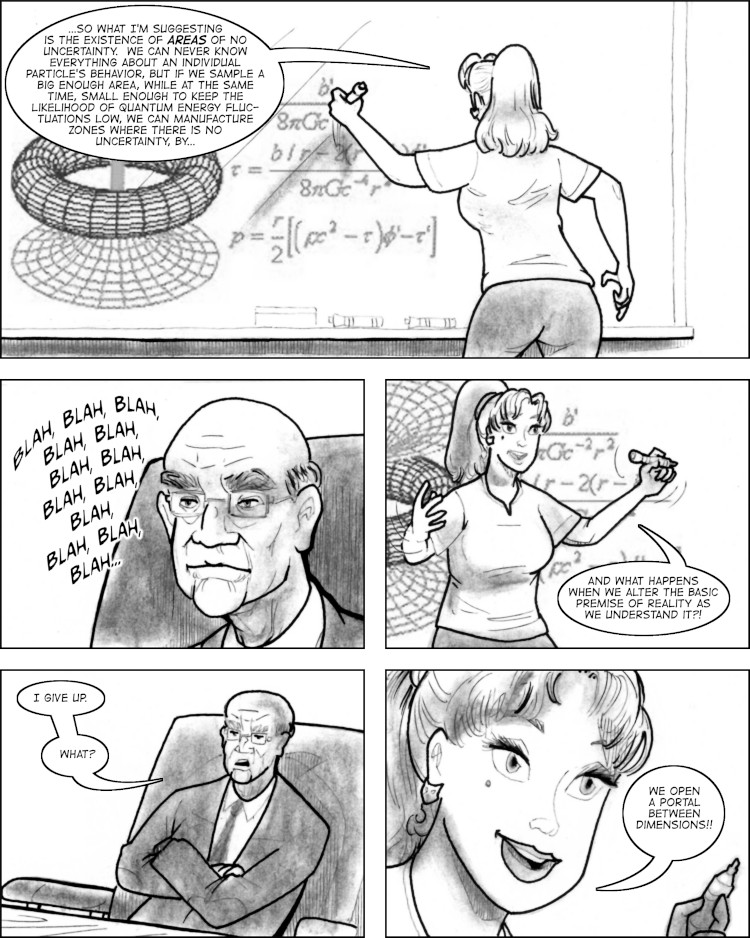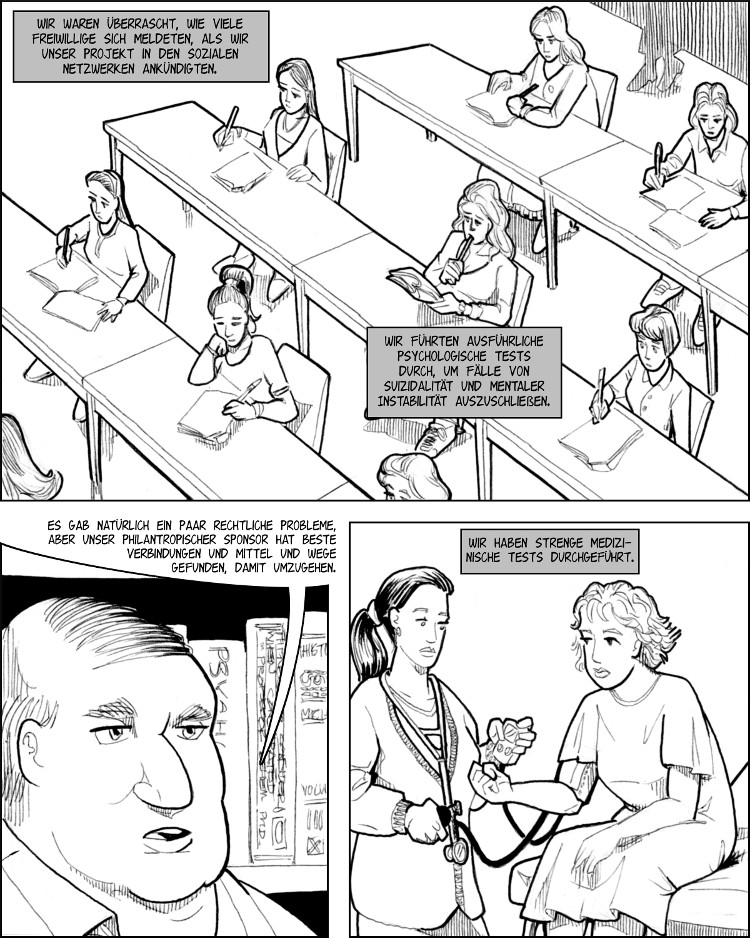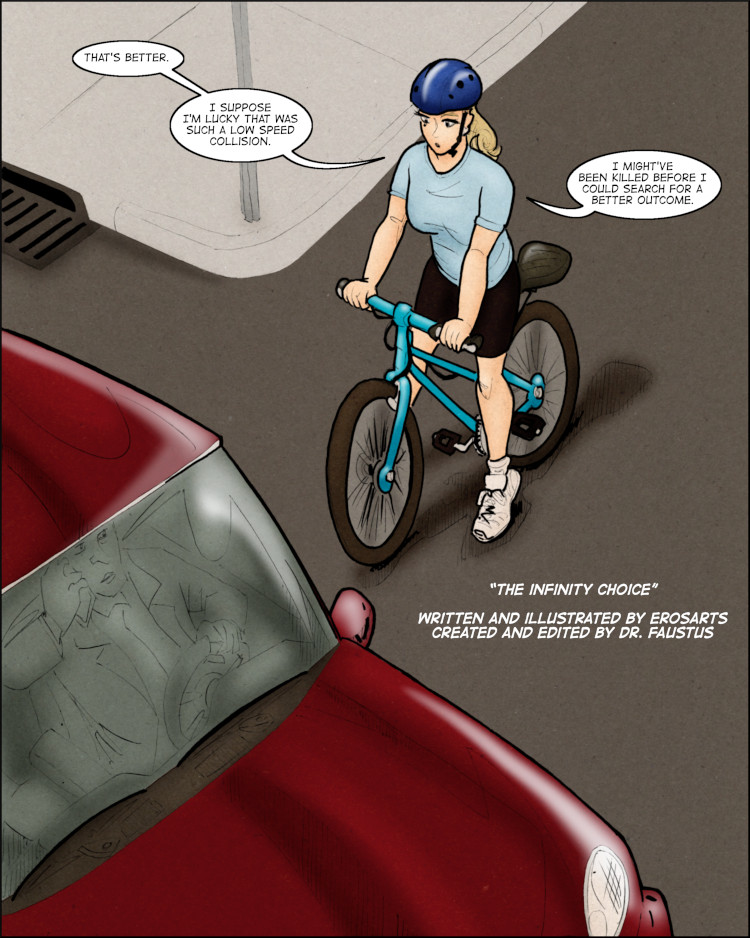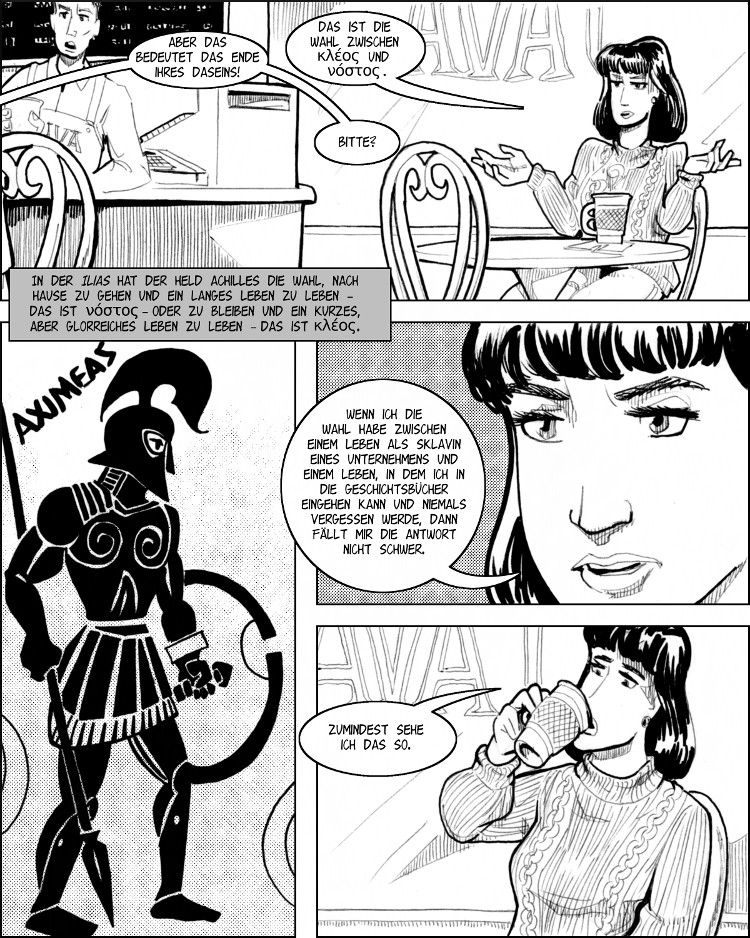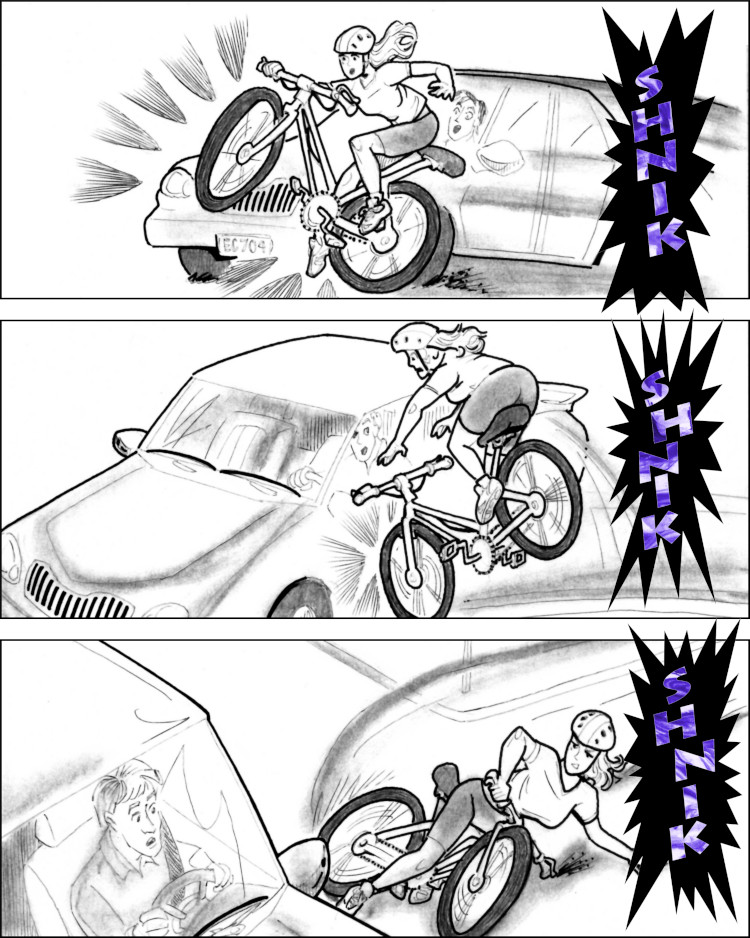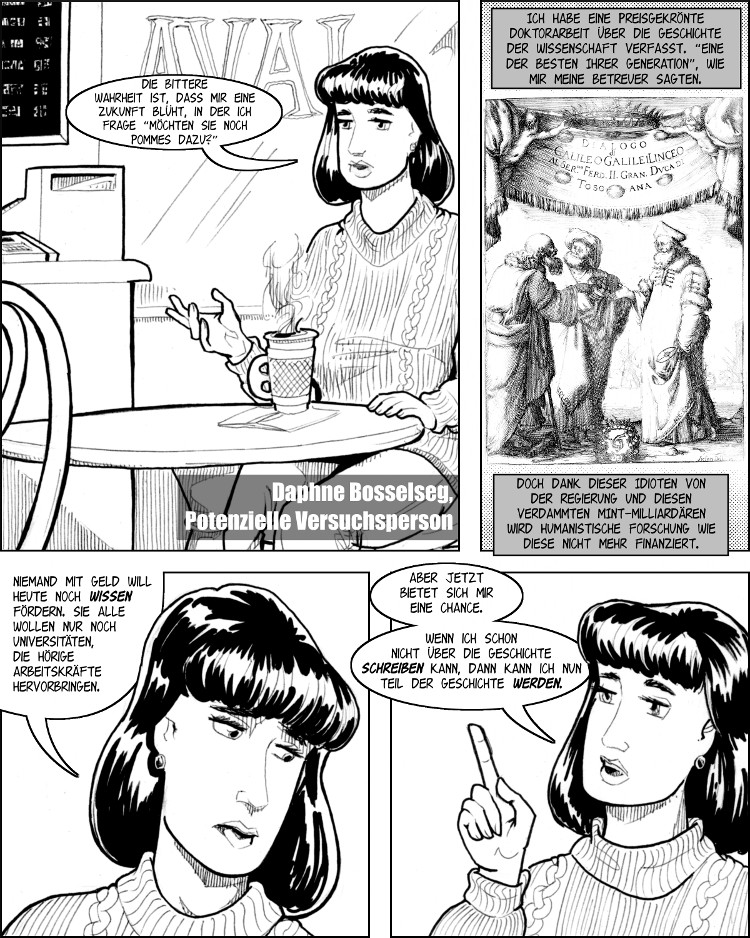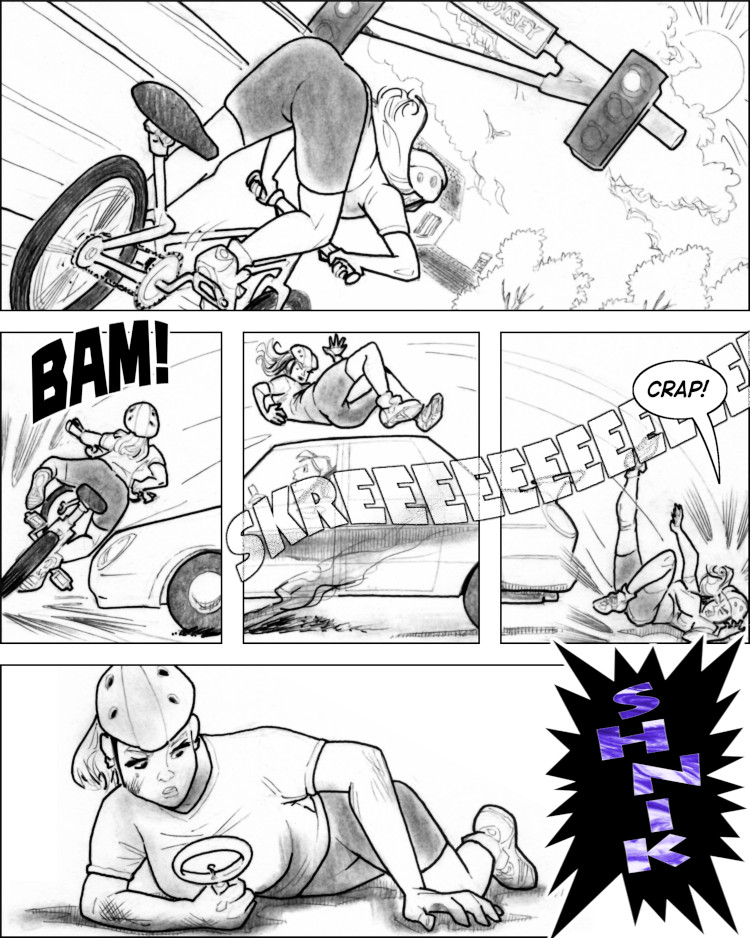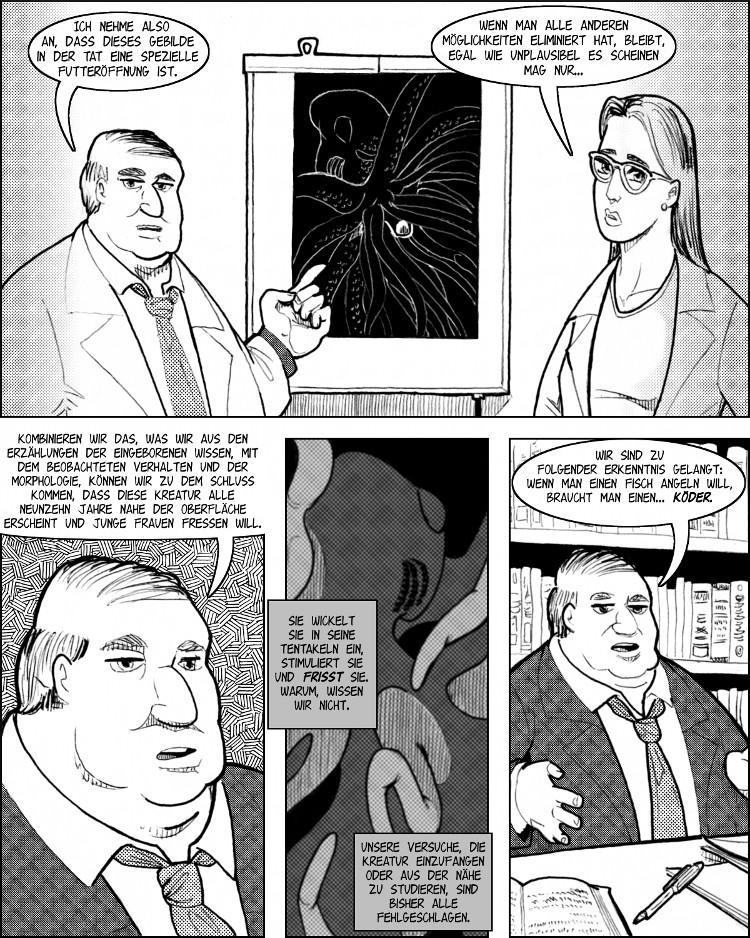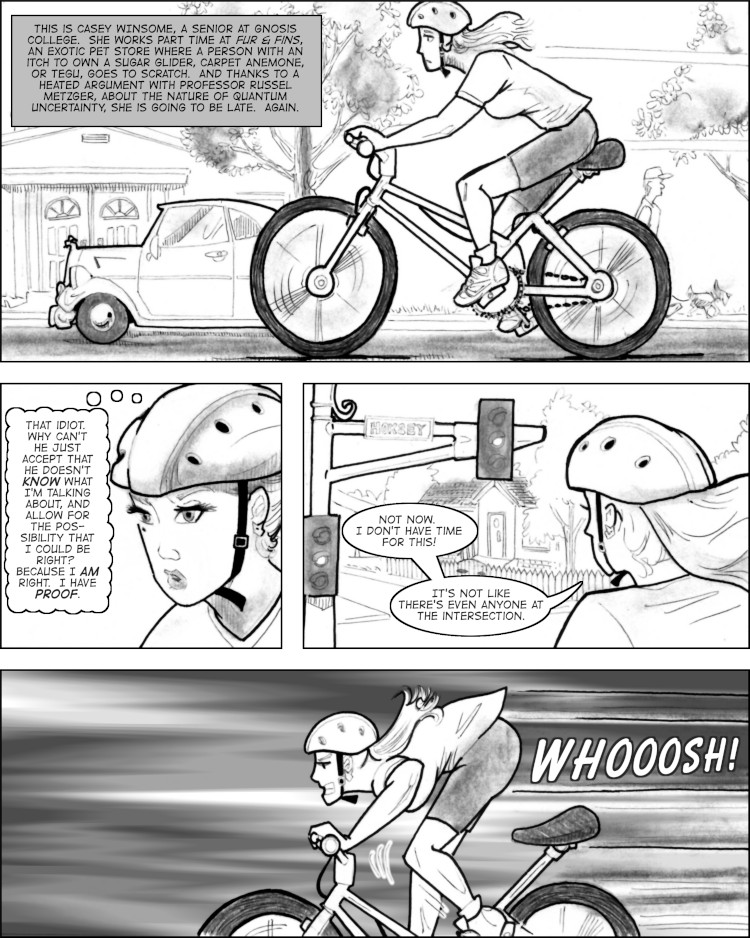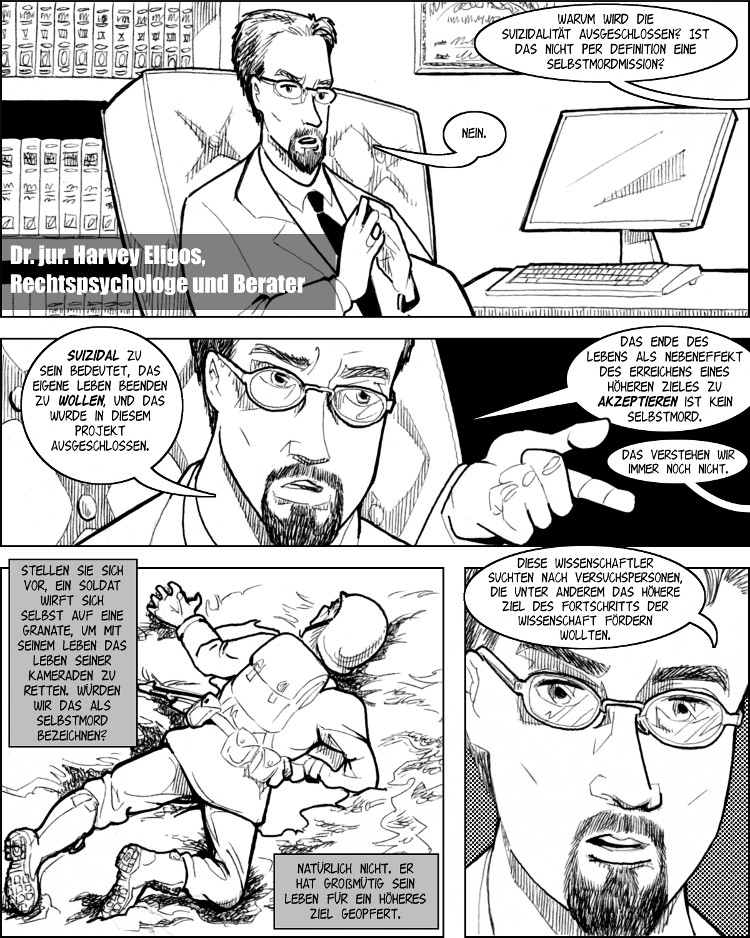

This work is licensed under a Creative Commons Attribution-NonCommercial-ShareAlike 4.0 International License.
PAGE 31 (Four panels)
Panel 1: HARVEY ELIGOS (“Eligos”), an elegant-looking man with a neatly trimmed Van Dyke beard and an expensive suit, sits across a polished wooden conference table in a conference room of a high-priced law firm. He is being interviewed. He looks and in control of his situation.
Unseen interviewer (1): We don’t understand about “non-suicidality.” Isn’t this a sort of suicide mission by definition?
Translation (1): Warum wird die Suizidalität ausgeschlossen? Ist das nicht per Definition eine Selbstmordmission?
Eligos (2): No.
Translation (2): Nein.
SUBTITLE (3): Harvey Eligos, J.D., Ph.D., legal psychologist and consultant.
Comment (3): I’m adding a comment because the meaning of Eligos’s postitial letters might not be obvious in all contexts. “J.D.” stands for juris doctor and represents the terminal degree awarded by most America law schools after a three-year course of study, In most American states, it is a prerequisite for taking a bar examination thus for being licensed to practice law. “Ph.D.” is short for philosophiae doctor and is a terminal degree awarded in American universtities for completion of a program of advanced graduate study in an academic field and is generally regarded a prerequisite for a permanent appointment teaching in a university.
Translation (3): Dr. jur. Harvey Eligos, Rechtspsychologe und Berater.
Panel 2: Harvey, still in control, continuing his response to the interviewer.
Eligos (4): To be suicidal means wanting to end one’s life, and that’s what the testing on this project was meant to screen out.
Translation (4): Suizidal zu sein bedeutet, das eigene Leben beenden zu wollen, und das wurde in diesem Projekt ausgeschlossen.
Eligos (5): Accepting the end of one’s life as a side-effect of achieving a higher goal, that’s not suicide.
Translation (5): Das Ende des Lebens als Nebeneffekt des Erreichens eines höheren Zieles zu akzeptieren ist kein Selbstmord.
Unseen interviewer (6): We still don’t understand.
Translation (6): Das verstehen wir immer noch nicht.
Panel 3: View of a dead United States Marine (WWII era), lying face down in the mud, his rifle and various battle detritus strew about his corpse.
CAPTION – ELIGOS NARRATING (7): Suppose a Marine throws himself on a live grenade, sacrificing his own life to save those of his fellow Marines. Would we call that a suicide? Of course not. He nobly sacrificed his life to achieve a higher goal.
Comment (7): “A Marine,” that is a member of the United States Marine Corps, a land-combat branch of the United States Navy.
Translation (7): Stellen Sie sich vor, ein Soldat wirft sich selbst auf eine Granate, um mit seinem Leben das Leben seiner Kameraden zu retten. Würden wir das als Selbstmord bezeichnen? Natürlich nicht. Er hat großmütig sein Leben für ein höheres Ziel geopfert.
LPanel 4: Close-up on Eligos’s face.
Eligos (8): These researchers were looking for subjects interested in the higher goal of advancing science, among other things.
Translation (8): Diese Wissenschaftler suchten nach Versuchspersonen, die unter anderem das höhere Ziel des Fortschritts der Wissenschaft fördern wollten.
![]() Köder (Deutsch/Langseitige Version)
Köder (Deutsch/Langseitige Version)
Köder (Deutsch/Dia-Version)

